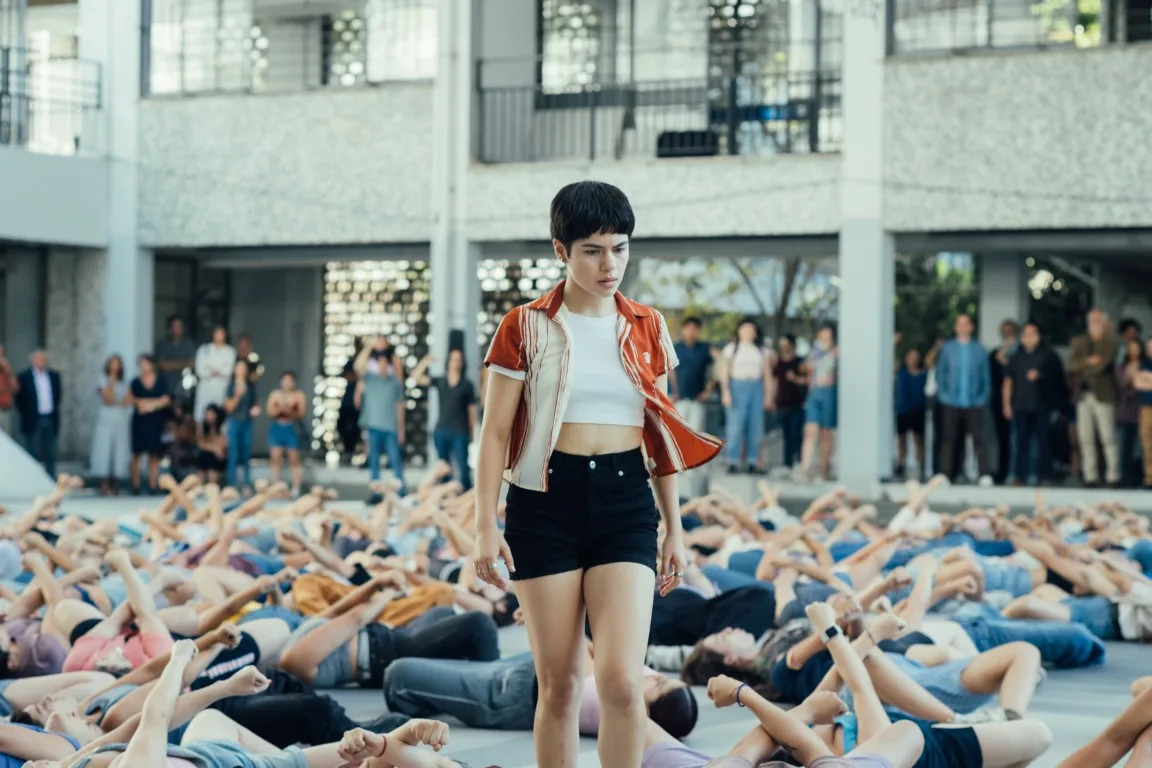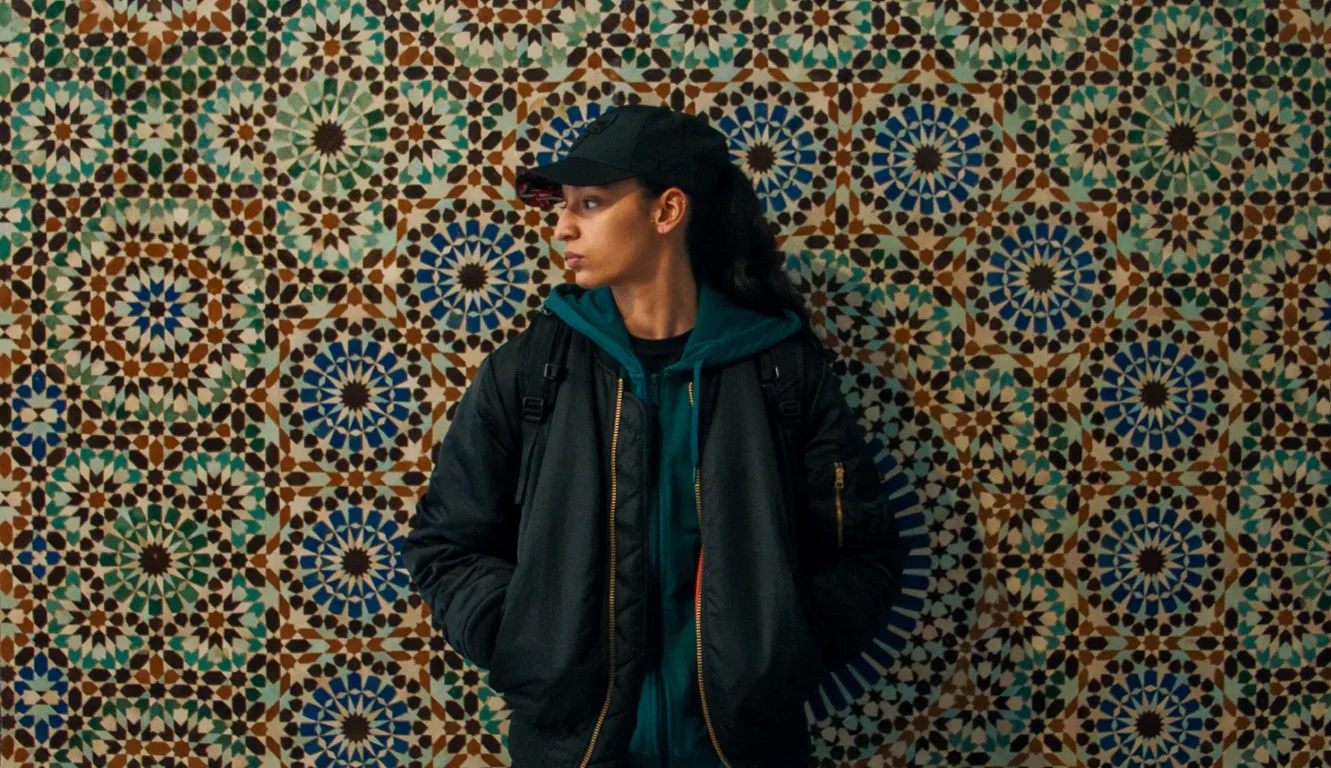“The Little Sister,” the third theatrical feature directed by actress Hafsia Herzi (and the first to be shown in competition), is the sort of movie that sounds ordinary when described but is nicely judged in its details. Based on a novel by Fatima Daas, it follows five seasons in the life of a young woman, Fatima (Nadia Melliti), as she transitions from high school into college in Paris and at the same time grapples with an important discovery about who she is.
Fatima realizes that she likes women, a revelation that challenges her identity as a devout Muslim from a large, traditional Algerian family. (The film opens with her reciting a blessing as she washes her hands.) How she will reconcile those two strains of her life is the thrust of the drama, which is refreshing insofar as it allows that the choice might not be all or nothing.
At the beginning, when she is studying for her baccalaureate, a young man who thinks he’s her boyfriend not only asks that they make things “official” by marrying but also adds that it’s time for them to start having babies—“a little princess, like you.” (The guy is probably Fatima’s age, but he looks like he’s barely out of junior high.)
Patriarchal assumptions are just one obstacle facing Fatima. She takes to dating apps to meet women, who start to give her a better sense of who she is and the life she wants to lead. One of the women she meets is Ji-Na (Ji-Min Park), a medical worker who treats her for asthma and just happens to be on the apps as well. There is a stronger connection between them than Fatima has felt with the other women. And the love seems to be mutual, except that Ji-Na suffers from severe depression, which makes the relationship complicated from her end as well.
A conventional movie might treat Fatima’s trajectory as moving purely toward total liberation, away from her spiritual upbringing. But late in the film, she sits down with a cleric to try to gain a better understanding of whether what she is doing is religiously proscribed. She also remains attuned to her mother’s sensitivities, and there is some question, in a conversation between them near the end, of whether the mother is quietly attuned to hers. In some ways, “The Little Sister” feels a little straightforward for competition, but it has enough cultural specificity (and enough of a vividly drawn protagonist) to linger in the mind.

Fighting the patriarchy is even more overtly a theme in “The Wave,” a musical from Sebastián Lelio (“A Fantastic Woman”) inspired by the women’s rights protests that took place in Chile in 2018.
And Lelio—who at one point breaks the fourth wall to acknowledge the irony that a man is writing and directing a picture on this topic—knows how to film a musical. Much of what’s infectious about the movie has to do with the fluidity of his camera and the first-rate choreography. This is a genre that, these days, is often executed clumsily, and “The Wave” manages be both a toe-tapper (the music is credited to Matthew Herbert, drawing on the input of what the press notes somewhat dismissively refer to as “17 Chilean female composers”) and, when necessary, a Brechtian exploration of activism and its complexities.
The plot centers on Julia (Daniela López), a second-year music student at her university who is coming to terms with the fact that a confusing encounter with a friend was most likely a sexual assault. When her fellow students begin to protest the blind eye that the school has turned to women’s complaints about sexual misconduct, Julia is persuaded to volunteer for the testimonials committee—which means she takes down others’ stories and begins to realize how pervasive that misconduct may be.
The demonstrations provide a natural outlet for songs, as when the students decide to cause a (metaphorical) storm by taking over the school. (“The weather forecasters are calling it an unusual phenomenon,” they sing. “It’s going to rain at the university.”) And while Lelio’s elaborate dolly and Steadicam shots give the dancers room to play, you can (in a good way) also imagine “The Wave” being adapted for the stage, with the back-and-forth between the administrators and the students—and the accusers and the accused—providing a kind of natural Jets-vs.-Sharks dynamic. If that sounds glib or trivializing, note that “The Wave” itself plays things a bit too broadly from time to time. In one number, cops shake their stuff and sing a song about the high-handed questions they ask of women who file complaints.
For all its energy and color, “The Wave” is hardly perfect; it has way too many endings, for a start, seemingly having lost touch with exactly what message it wants to send viewers out with. But it’s also hard to dislike. Catchy musicals with punch, heart, and ideas can’t be taken for granted.












